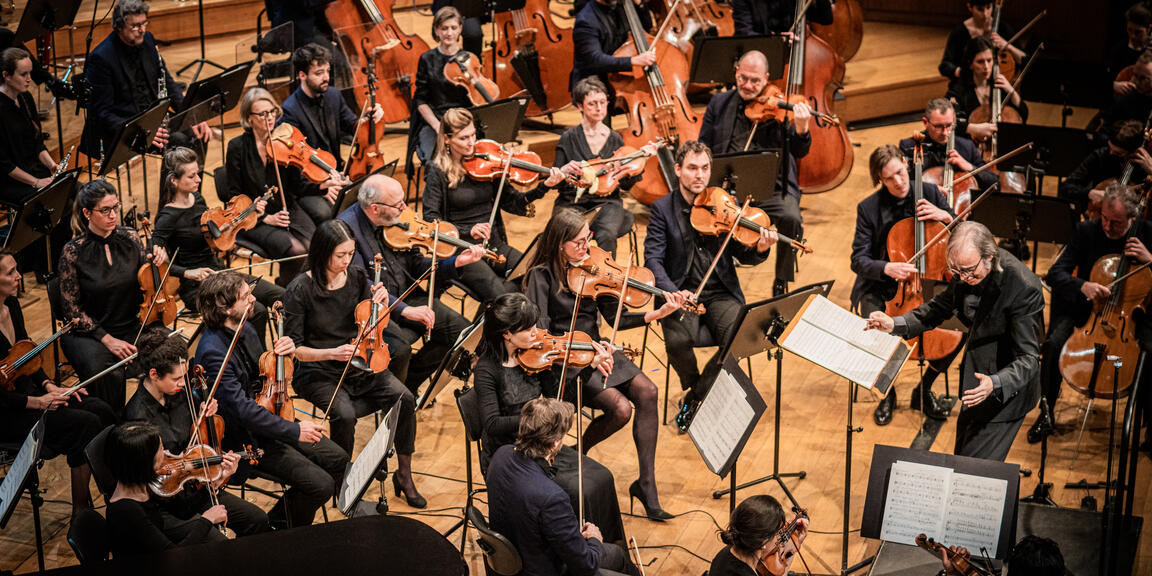
Stravinsky & Messiaen
Brussels Philharmonic, Vlaams Radiokoor & Ilan Volkov, dir.
From the contemplative mysticism of Messiaen to the Buddhist prayers of Boulanger and the neoclassical psalm settings of Stravinsky, these radical innovators all use the voice as a catalyst in the universal human quest for a higher purpose and peace of soul.
We all believe in something, whether it's religious faith, trust in science, or simply belief in ourselves and the opportunities life offers. Rituals and traditions provide guidance in this journey – even for radical innovators like Messiaen and Stravinsky.
Messiaen found inspiration in ancient Greek poetry, Hindu rhythms, and birdsong, but also from peers like Debussy and Stravinsky. The constant: his unwavering, mystically oriented Catholic faith. The a cappella strength of O sacrum convivium beautifully captures the ritual of transforming bread and wine into the body of Christ, while Les Offrandes oubliées, his first symphonic work, contrasts the dramatic fall and crucifixion with the salvation found in pure faith.
From a modernist like Stravinsky, one might not expect a strong dedication to God, yet his Symphonie des psaumes resonates almost like a musical icon. Moreover, he gave the classical concept of “symphony” a unique and innovative interpretation. The result is a radically new and dark sound, making it one of the most spiritual and moving works composed by Stravinsky.
Lili Boulanger focused on religion more than any of the other impressionist disciples. And yet, while her Christian faith was a source of inspiration, she also looks at Buddhism, and gives a Buddhist prayer conveying a message of peace for all humanity the same kind of grand treatment as her massive and powerfully sounding psalm settings.
Flagey, Brussels Philharmonic, Vlaams Radiokoor
